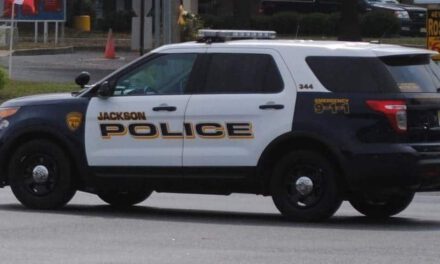Click for Original Story (Patch)
New Jersey medical marijuana patients are being hit with high prices and a chronic lack of cannabis, two serious problems that need to be fixed as the state moves forward with its rapidly changing program, state health officials said Monday.
On Monday, the New Jersey Department of Health (NJDOH) Medicinal Marijuana Program released its biennial report, which suggested that 50 to 90 dispensaries will be needed in the state in the next three years to keep up with a steep rise in demand among patients.
In New Jersey, the price of medical marijuana is so high that roughly half of the state’s patients pay more for their cannabis legally than on the black market, officials said.
The effects of ongoing cannabis droughts and high prices can be devastating to patients such as Lindsay Abromaitis-Smith, a Flemington, New Jersey resident who has been battling ALS for seven years. Recently, in an effort to bring awareness to the struggles of the Garden State’s medical marijuana patients, Health Commissioner Shereef Elnahal visited Abromaitis-Smith’s home and spoke with her about the need for improvements in the state program.
“She is a constant reminder that as long as we maintain a compassionate program, we must and will move forward with expanding the number of growers in the program to increase supply,” Elnahal emphasized. (Story continues below video)
- See related article: New Jersey Marijuana Patients Offer Human Side To Weed Debate
NJDOH officials offered the following three recommendations to Gov. Phil Murphy and the state Legislature on Monday:
RAISE THE MONTHLY LIMITS – “The 2 ounce-per-month statutory allotment for qualified patients is not sufficient and should be raised.”
LOWER PRICES – “New Jersey’s [medical marijuana dispensaries] did not charge excessive prices, but high prices are likely artificially suppressing demand among qualified patients. Lowering prices must be an explicit goal for policymakers and the department. The best way to lower prices is to expand supply, access and competition.”
ALLOW MORE DISPENSARIES – “There is a strong need for additional [medical marijuana dispensaries], even with six more in the permitting process. The absolute minimum number of cultivation sites needed to meet projected patient demand for medicinal marijuana in the future is 24, plus over 50 dispensary sites.”
Other highlights from Monday’s report include:
- The top five medical conditions among patients who have qualified for the program are: Chronic pain due to musculoskeletal disorders (25.4%), anxiety (20.2%), intractable skeletal spasticity (19.9%), PTSD (8.8%), and severe or chronic pain due to cancer or HIV (6.85%)
- Among patients making purchases, the average purchase per month was just over an ounce
- There are nearly 1,800 caregivers and 937 doctors participating in the Medicinal Marijuana Program
MORE MARIJUANA NEEDED IN NEW JERSEY?
Last year, state officials added five new conditions that qualify residents for medical marijuana in New Jersey: anxiety, migraines, two forms of chronic pain and Tourette’s Syndrome. In January, officials also added opioid use disorder (coupled with medication-assisted treatment). This has led to a total of 43,710 patients participating in the program — 26,687 of whom joined since Gov. Phil Murphy took office.
New Jersey’s six Alternative Treatment Centers (ATCs) nearly doubled their revenues from 2017 to 2018, earning $29 million and $53 million respectively, state officials said. The six currently approved ATCs are located in Montclair, Egg Harbor, Woodbridge, Cranbury, Bellmawr and Secaucus.
- See related article: Rush For Medical Marijuana In NJ After New Conditions Approved
In December 2018, NJDOH officials announced the locations of six new proposed dispensaries in Phillipsburg, Paterson, Elizabeth, Ewing, Atlantic City and Vineland.
- See related article: NJ Names 6 Towns Up For New Medical Marijuana Dispensaries
New Jersey medical marijuana and cannabis advocates have been pushing for years to expand the list of qualifying conditions in a state that has been widely criticized for a lack of dispensary locations, as well as shortages of marijuana and doctors willing to prescribe it.
- See related article: New Jersey Activists Fight To Expand Medical Marijuana Program
- See related article: Is There A Medical Marijuana Doctor Shortage In New Jersey?
Indeed, one of the biggest hurdles that medical marijuana patients face in New Jersey is the hit to their wallets, officials said.
According to the NJDOH report:
“The department’s analyses of prices showed no evidence that dispensaries were charging excessive prices but did find evidence that high prices were artificially suppressing patient demand. The department looked at average prices of medical marijuana per ounce sold during 2017 and 2018, and compared to prices on the illegal market. Both analyses showed comparable prices in New Jersey’s regulated market if patients were eligible for discounts but showed higher prices if patients weren’t eligible for discounts. However, for premium whole flower, prices at five out of six dispensaries were $100 more per ounce than the illegal market price.”
“Keeping prices below the illegal market is the best way to ensure patients purchase lab-tested products at regulated dispensaries and responsibly use the therapy under the supervision of a health care provider,” Jeff Brown, assistant commissioner of the Division of Medicinal Marijuana said Monday. “The need to expand the industry is clear, and we are committed to making it happen.”







Recent Comments